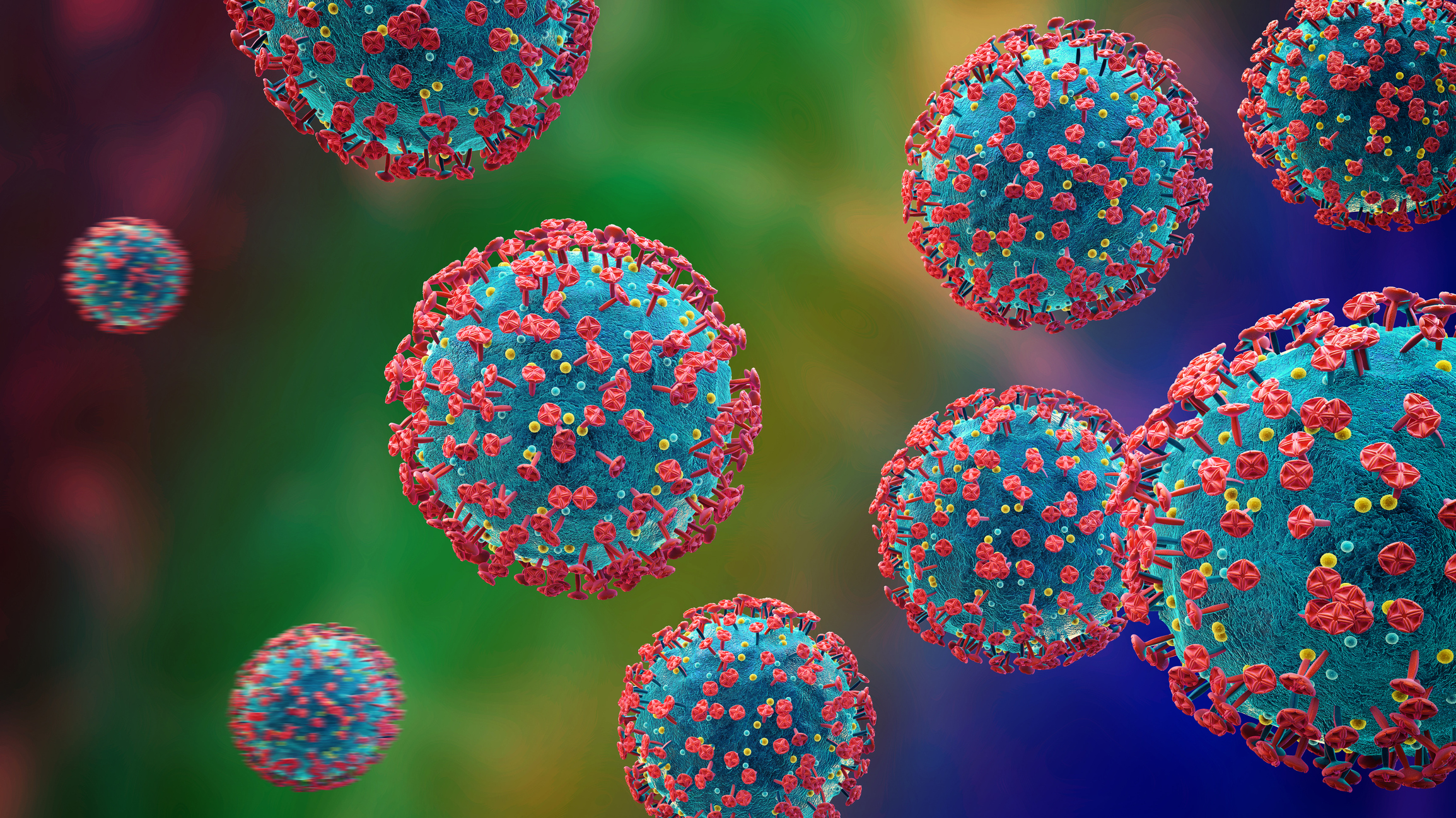What are the Omicron symptoms? Here's what we know so far
The symptoms look to be slightly different from other strains of Covid

Here at Tom’s Guide our expert editors are committed to bringing you the best news, reviews and guides to help you stay informed and ahead of the curve!
You are now subscribed
Your newsletter sign-up was successful
Want to add more newsletters?

Daily (Mon-Sun)
Tom's Guide Daily
Sign up to get the latest updates on all of your favorite content! From cutting-edge tech news and the hottest streaming buzz to unbeatable deals on the best products and in-depth reviews, we’ve got you covered.

Weekly on Thursday
Tom's AI Guide
Be AI savvy with your weekly newsletter summing up all the biggest AI news you need to know. Plus, analysis from our AI editor and tips on how to use the latest AI tools!

Weekly on Friday
Tom's iGuide
Unlock the vast world of Apple news straight to your inbox. With coverage on everything from exciting product launches to essential software updates, this is your go-to source for the latest updates on all the best Apple content.

Weekly on Monday
Tom's Streaming Guide
Our weekly newsletter is expertly crafted to immerse you in the world of streaming. Stay updated on the latest releases and our top recommendations across your favorite streaming platforms.
Join the club
Get full access to premium articles, exclusive features and a growing list of member rewards.
Today, the World Health Organization (WHO) has urged people to cancel some holiday plans to protect public health, as the Omicron strain of the Coronavirus continues to spread across the globe. "An event canceled is better than a life canceled," said WHO head Dr. Tedros Adhanom Ghebreyesus.
In the US, Omicron is accounting for 73% of new infections, and President Joe Biden is expected to address the nation on Tuesday. Omicron is also the most dominant variant in the UK, where it is estimated to be doubling every 2.4 days in the southwest of the country. But what are the symptoms of infection with the Omicron variant, and how is it different?
Health officials say it is currently too soon to tell whether the disease is milder with the Omicron variant, which was first detected in South Africa in November. Here’s what we know so far:
What are the symptoms of infection with the Omicron variant?
The most commonly reported symptoms of infection with Omicron are a lot more cold-like than other variants of Coronavirus. In the US and UK, those infected have reported having a:
- Runny nose
- Headache
- Fatigue (either mild or severe)
- Sneezing
- Sore throat
In the UK, Tim Spector, the lead scientist behind the Zoe Covid Study app has been calling to the Government to update the list of Coronavirus symptoms, which has remained unchanged since the Delta variant. “We need to educate people, go back to the basics, and say that if you’ve got cold-like symptoms keep away from people. You shouldn’t be waiting for the three classic symptoms” he said.
What do we know about the Omicron variant?
The CDC has confirmed that it’s still too soon to answer a lot of questions about the Omicron variant — “we don’t yet know how easily it spreads, the severity of illness it causes, or how well available vaccines and medications work against it.”
We do know, however, that the Omicron variant has more than 30 mutations to the virus’ spike proteins. These proteins cover the outside of the virus and are the main targets of vaccines. Over the course of the pandemic, there have already been a number of mutations of the virus, including the Delta variant. While most mutations won’t affect how the virus operates, a few are thought to make Coronavrius more transmissible, and that is the concern with Omicron.
Get instant access to breaking news, the hottest reviews, great deals and helpful tips.
Is Omicron more contagious than other variants?
The CDC says it is likely that Omicron is more contagious: “The Omicron variant likely will spread more easily than the original SARS-CoV-2 virus and how easily Omicron spreads compared to Delta remains unknown. CDC expects that anyone with Omicron infection can spread the virus to others, even if they are vaccinated or don’t have symptoms.”
As reported by USA Today, the omicron variant multiplies 70 times faster in the human bronchial tubes than the initial COVID-19 infection or the delta variant. This is according to a new study from the University of Hong Kong.
At the moment, more research is needed before conclusions can be made. Vaccines and face masks are the best protection, according to the CDC. Here’s everything you need to know about where to buy rapid Covid test kits, and where to buy the best face masks online.
Do current vaccines work on the Omicron variant?
An analysis released on December 14 by South Africa’s largest health care administrator found that two shots of the Pfizer-BioNTech vaccine were 70 percent effective at protecting against hospitalization from the Omicron variant. This is less than the 90 percent protection against hospitalization the vaccine offered from the Delta variant. Vaccine creators have said a third shot was the best way to neutralize the Omicron variant.
Researchers at the Imperial College London also found that Omicron largely evades immunity from two vaccine doses or past infection. Researchers found the risk of reinfection with the Omicron variant to be 5.4 times greater than that of the Delta variant.
Pfizer has reported that those who took the initial two-dose series were still vulnerable to being infected by omicron, according to a press release. But a third booster dose of the Pfizer vaccine “increased the neutralizing antibody titers by 25-fold” that were able to fight the omicron variant.
As reported by the Associated Press, Moderna has announced that its COVID-19 booster should offer protection against the omicron variant based on on initial lab tests. Moderna says that its half-dose booster shot increased the neutralizing antibody titers by 37-fold.
This is a rapidly changing situation, and for up-to-date Coronavirus advice, consult the World Health Organisation, the CDC in the US, and the NHS in the UK.

Jane McGuire is Tom's Guide's Fitness editor, which means she looks after everything fitness related - from running gear to yoga mats. An avid runner, Jane has tested and reviewed fitness products for the past five years, so knows what to look for when finding a good running watch or a pair of shorts with pockets big enough for your smartphone. When she's not pounding the pavements, you'll find Jane striding round the Surrey Hills, taking far too many photos of her puppy.
 Club Benefits
Club Benefits










